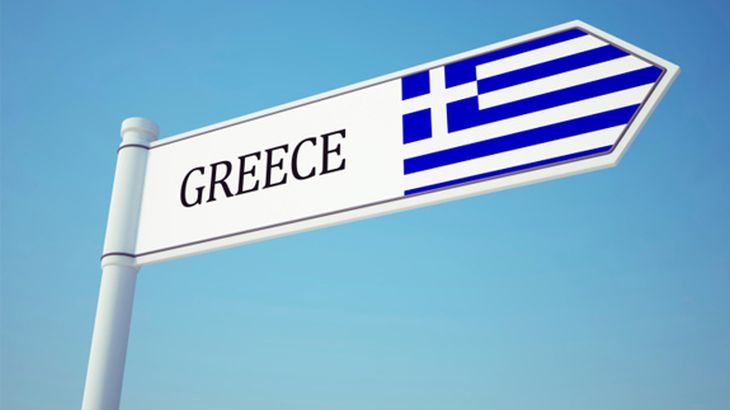Panos Skourletis, new Greek energy minister, is tasked with a heavy reform agenda that could help revive the cash-strapped Greek economy and make the country return to growth. But the stakes are high, writes Euractiv.com.
Skourletis replaced far-left Panagiotis Lafazanis during the last reshuffle of the Syriza-led government following the bailout agreement reached between Greek authorities and the country’s lenders on 12 July. Lafazanis leads the far-left faction within Syriza, the so-called Leftist Platform, which now openly opposes the Greek Prime Minister Alexis Tsipras, increasing the possibility of a party breakup.
Panos Skourletis belongs to Tsipras’ camp and is clearly more moderate compared to his predecessor in the ministry. Many believe that his rational rhetoric may bring hope for the revival of the Greek energy industry, burdened by the highest costs in Europe.
A heavy agenda
Panos Skourletis assumes a post of high significance for the debt-ridden country, which urgently seeks investments as a way out of the economic suffocation it has been through. Breaking state energy monopoly, which has prevailed in Greece, will be a tough task for Skourletis as the lack of competitiveness has been under EU executive’s scrutiny. In a recent interview with EurActiv EU’s Commissioner for Competition, Margrethe Vestager, said that Greece’s electricity market monopoly negatively affects the consumers.
“Competition in Greek electricity markets is very limited. This affects generation and wholesale supply, and also the supply that reaches end consumers, which is virtually a monopoly. This is bad news for consumers and for the economy. Clearly, there is a need to strengthen competition”, she stressed.
Re-approaching the EU?
His predecessor, Lafazanis, “buried” all the critical energy market related issues and attempted to enhance Greece’s energy bonds with Moscow. Instead of pushing for reforms that would open the Greek energy market and help the country comply with the EU rules, Lafazanis focused on maintaining the state monopoly regime in the energy sector, triggering strong reactions in Brussels. Indicatively, during the last months Lafazanis did not meet any industry representative.
On the contrary, he held several meetings with the strong trade union of the electricity company Public Power Corporation S.A. (PPC) – controlled by the Greek government- and he also put “his people” in charge at the Regulatory Authority for Energy (RAE), Independent Power Transmission Operator and other state energy assets.
Lafazanis didn’t hide his opposition to the EU’s Energy Union, claiming that it undermined Greece’s national interests and he strongly supported the Gazprom-led Turkish Stream pipeline. Greece imports 65% of its yearly gas from Russia, and despite a deal for a price reduction of 15% last year between natural gas importer and distributor (DEPA) and Gazprom, debt-ridden Greece keeps on paying the highest bill in Europe.
On 19 June, Russia and Greece signed a deal for a section of the Turkish Stream pipeline across Greece, and Gazprom announced plans to build two additional stretches to the Nord Stream gas pipeline. But the Commission argued against importing more Russian gas and said it would thoroughly scrutinize the new projects for compliance with EU rules.
Privatisations
Part of the new bailout agreement reached between Athens and its international creditors also includes the privatisation of the Independent Power Transmission Operator (ADMIE), a fully-owned subsidiary of the Public Power Corporation (PPC). But Skourletis doesn’t seem comfortable with such a scenario as he recently said that the Syriza-led government would seek alternatives. “We will follow the way of alternative equivalent measures, as is the case in other European countries in respective fields”, he noted.
The energy cost
High energy costs for energy intensive industries are considered a tough challenge for Skourletis. Industry representatives have repeatedly urged the Greek government to find a solution on the energy cost in order to decrease the production cost and ultimately avoid the loss of thousands of jobs in the energy sector.
Greece’s state electricity supplier unilaterally imposes its tariffs on Greek energy intensive industry without previous negotiations resulting in unbearable and unpredicted costs for the Greek businesses. Greek industries’ energy cost is one of the highest in the EU and many believe it makes entrepreneurship unsustainable.
According to energy analysts, a solution could be to introduce more flexible power prices to lower companies’ costs. Athens has pushed for the so-called “interruptibility” agreements, under which big power consumers can briefly take their factories off the grid and get refunds from Greece’s state-run power network operator. Energy experts claim that the legal framework for such an initiative exists, but the previous governments have been reluctant to push it forward.
An independent Regulatory Authority
Another challenge for Skourletis will be to ensure the independence of the Regulatory Authority for Energy (RAE). RAE’s independence has been put into question over the last five months due to Lafazanis’ interventions, with Brussels repeatedly warning Athens of the necessity to strictly follow the EU rules and keep it away from government influence.
